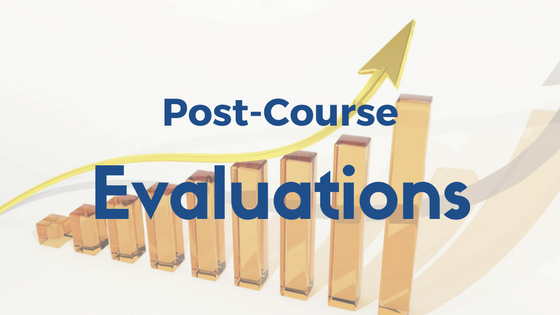
For many adjuncts, student course evaluations may often determine their employment status or payment. As Chronicle Vitae notes, many adjunct professors report being fired for poor performance on student evaluations, and for many others, student evaluations might impact their pay. Student course evaluations often follow the end of a course and entail students rating the professor and course on several metrics, including but not limited to easiness of the course, helpfulness of the professor, quality of instruction, and structure of the course curricula and syllabi.
One main way to improve your performance on a student evaluation is to emphasize to students that your course will be challenging but fair. Don’t lower academic standards (as will be discussed below), but be sure to provide frequent opportunities for students to seek help, and making sure that exams are well-constructed and cover only the material that was taught can ensure that students don’t feel cheated into a bad grade. Set high expectations for students and give them the tools they need to meet them.
Another tip to improve your performance on course evaluations is to make lectures and content interesting to students. While most professors will try to do this irrespective of course evaluations, designing content and curricula relevant and directly-applicable to students’ lives can help them stay engaged in the course, making them likely to rate you highly on evaluations. Adjuncts may be uniquely well-situated to make arcane topics relevant to students, as adjuncts frequently have outside career experience and can relate academic topics to the real world.
Something to avoid when trying to improve your student course evaluations is making your course easier. Oftentimes, depending on the institution, course evaluations will include a rating of how easy the course was, and having a course that is too easy may not reflect well on your teaching. The policy of your institution may vary on this with respect to its impact on employment and pay, but given that your role is to instruct students, don’t lower expectations, but instead empower students to reach higher goals.

